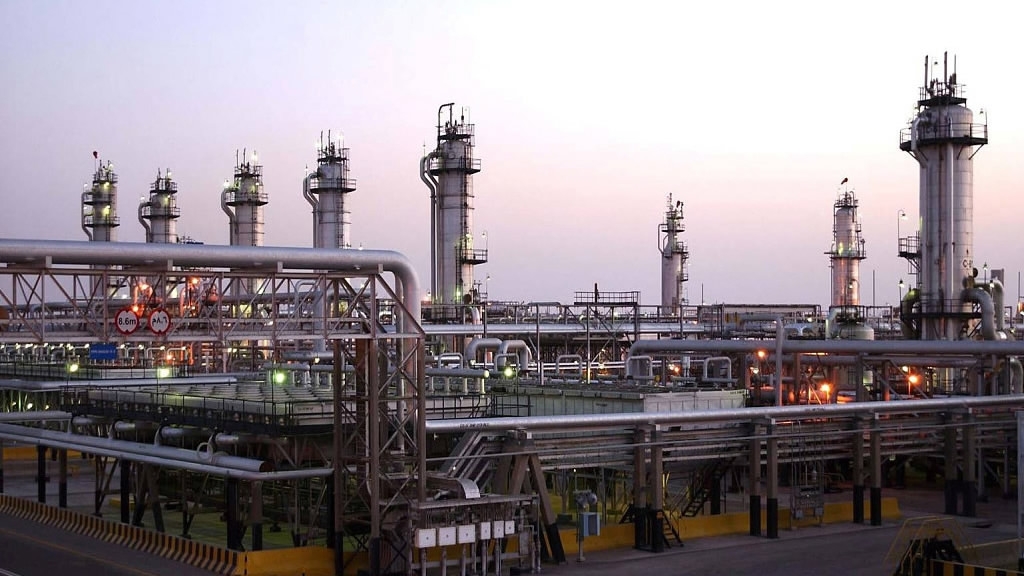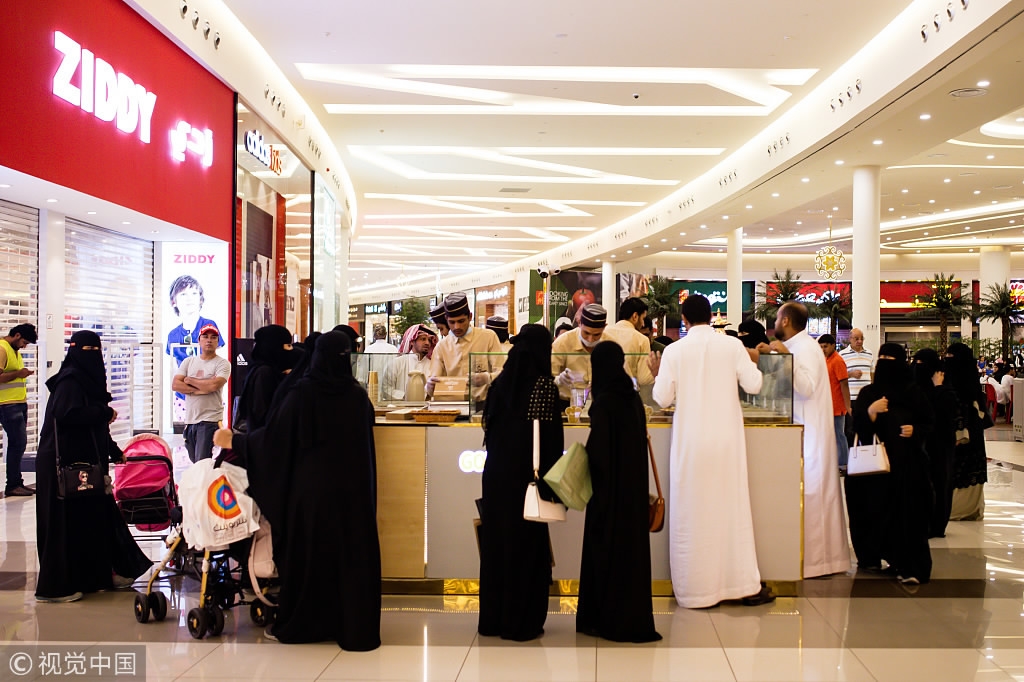
Business
12:21, 13-Dec-2017
Saudi Arabia 'set' to hike domestic petrol prices by 80% next month
CGTN

Saudi Arabia plans to increase domestic petrol and jet fuel prices in January 2018, as part of a program to gradually eliminate energy subsidies as the kingdom seeks to overhaul its economy and balance the budget, Bloomberg news agency reported citing a person with knowledge of the matter.
Petrol prices are set to increase by about 80 percent, while jet fuel prices will be raised to international levels in one go, the person told Bloomberg, on condition of anonymity because the matter isn’t yet public. Petrol and other fuels such as diesel, kerosene and heavy fuel oil, will see incremental price increases over several years, the person said.
Excluding jet fuel, prices won’t reach international levels until 2023 at the earliest, and potentially by 2025. Electricity tariffs won’t be increased directly, but will rise gradually with other energy prices, the person said. The finance ministry, which oversees the subsidy reform program, did not immediately respond to a request for comment.
The new plan represents a slower timeline for the removal of subsidies as the government tries to offset the impact of the measures on a struggling economy, the Bloomberg report said. Authorities first reduced subsidies in December 2015 after years of debate as oil prices plummeted. Officials later said they would eliminate them entirely by 2020, part of Crown Prince Mohammed bin Salman’s Vision 2030 plan for the post-oil era.
The world’s biggest oil exporter is struggling to cope with low prices and spending cuts aimed at reducing a budget deficit that reached about 15 percent of gross domestic product in 2015. The economy contracted in the first two quarters this year.
Finance Minister Mohammed Al-Jadaan said in an interview in October that prices of some subsidized domestic energy products will rise to international levels later than previously envisaged. Authorities will not rush to balance the budget by 2019 to avoid hurting growth, he said. Next year’s budget will be announced on December 19.
Govt approves cash transfer program

Saudi shoppers at the Al Yasmin mall in Jeddah, Saudi Arabia, on August 6, 2017. /VCG Photo
Saudi shoppers at the Al Yasmin mall in Jeddah, Saudi Arabia, on August 6, 2017. /VCG Photo
Meanwhile, the Ministry of Labor and Social Development on Tuesday approved the details of a cash transfer program, known as the Citizen’s Account, and confirmed the first payment will be made to eligible Saudi households on December 21, 2017, according to Saudi media reports.
The Citizen’s Account is a national cash transfer program that was first announced by the Government in December 2016 and opened for registrations in February 2017, Al Arabiya reported.
It aims to increase the efficiency of government benefits distribution by targeting the less fortunate in society.
Therefore, it eases the direct and indirect impact on low and medium income households resulting from the ongoing economic reforms such as the gasoline price adjustment, the electricity tariffs adjustment, and the value added tax (VAT) on all food and beverage items.
It will also encourage sensible consumption of the aforementioned products.
Tuesday’s announcement provides detailed guidance on the eligibility conditions to receive the CA payment and its calculation.
The criteria specify that the beneficiaries have to be citizens of the Kingdom of Saudi Arabia (with the exception of the son or daughter of a citizen and non-Saudi spouses) and permanently residing in the country.
The entitlement amount for eligible Saudi households will differ depending on three main factors: the total income of the household, number of dependents in that household and their age.
The amount will be reviewed on a quarterly basis to ensure appropriate and adequate support for eligible Saudi households.The CA amount will not affect any current Government support payments received by the households.
[Top photo: Saudi Aramco's Abqaiq oil facility in eastern Saudi Arabia. /VCG Photo]

SITEMAP
Copyright © 2018 CGTN. Beijing ICP prepared NO.16065310-3
Copyright © 2018 CGTN. Beijing ICP prepared NO.16065310-3